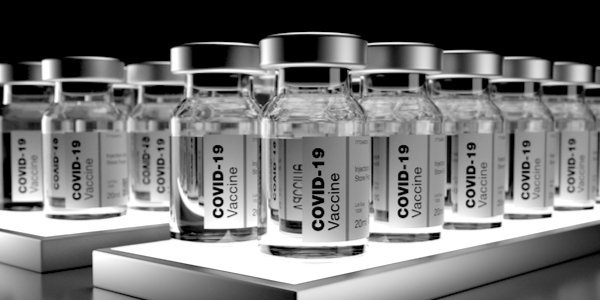
–
CANCER causes one in four of all deaths in the UK, with a peak rate in people aged 85-89. The outpouring of support for the Princess of Wales, aged 42, who revealed her illness in a video message last Friday, reflects the compassion felt for Kate and her family over coping with the diagnosis while in the prime of life. Survival varies hugely between cancer types, and millions will be subscribing to the hope that the Princess recovers completely.
As with any disease, chances of successful treatment increase when there is accurate understanding of the cause or causes. With cancer, there are usually multiple factors at play, such that the body’s natural defences against rogue cells become overwhelmed.
Last Saturday the Telegraph reported that an ‘epidemic’ of cancer in young people (under 50s) has taken experts by surprise. Diet, genetic inheritance, and perhaps a greater willingness to get symptoms checked out, are among possible factors mentioned by researchers. The American Cancer Society also says that among a record two million new cases expected in 2024, many are occurring in younger people.
As TCW reported last week, there is strong statistical evidence that a huge rise in the number of long-term sick in the UK is related to an increase in cancer cases in the 15-44 age group. The increase began in 2021 and accelerated substantially in 2022.
A similar study, looking at US death rates in the same age group in which cancer was the underlying cause, has found that these began to rise in 2020 (by 1.7 per cent) and accelerated substantially in 2021 (5.6 per cent) and 2022 (7.9 per cent). When cancer was reported as one of several causes, the excess mortality was even higher, rising from 3.3 per cent in 2020 to 7.9 per cent in 2021 and 9.8 per cent in 2022.
The possibility that the mass rollout of the experimental mRNA covid jabs, which began in 2021, could have something to do with this crisis would seem obvious to anyone with a head on their shoulders. Yet to date, medical and scientific authorities, and the two main political parties, have vigorously censored or slapped down any such suggestions.
The mainstream media, notably the BBC, have for the most part cravenly fallen in line with this monolithic deception. It is perhaps the most disastrous example ever of psychotic institutional denial.
Almost three years ago, a 42-page scholarly study called Worse Than the Disease? Reviewing Some Possible Unintended Consequences of the mRNA Vaccines Against Covid-19 was published in the International Journal of Vaccine Theory, Practice and Research. It set out evidence that the mass rollout of the jabs, which incorporate the genetic code for the covid virus’s pathogenic spike protein, was not taking account of the complexity of the body’s potential for reactions to foreign genetic material. The worry was especially great because the RNA code used in the jabs is modified so as to make it long-lasting.
The protein alone had been shown to be enough to damage blood vessel linings and blood clotting processes. There was also a risk that antibodies to the protein arising either from vaccination, or previous exposure to the virus, could ‘prime’ the immune system in such a way as to provoke chronic autoimmune and inflammatory reactions on subsequent exposure, a particular concern with booster shots. And if the code were to become integrated into cell DNA, it ‘could instruct the synthesis of large numbers of copies of proteinaceous infectious particles, with potentially tragic and even catastrophic unforeseen consequences’. The paper argued that the evidence cited made it vital for regulators to do much more to track adverse events in vaccine recipients.
Not only have the regulators, largely funded by the pharmaceutical industry, failed miserably on that score, but numerous warnings have either been censored or brushed aside.
One of the first was from Dr Angus Dalgleish, a London University professor of oncology who with leading Norwegian researchers showed that the covid virus genetic sequence had been genetically engineered, making the spike protein a special threat to humans. This contradicted strenuous denials by Nature, The Lancet, the World Health Organization and many leading scientists who tried to make out that it had arisen naturally, jumping from bats or some other animal species.
This vitally important paper was suppressed for many months, with Dalgleish being told by government sources that it was ‘not in the public interest’ for it to be published. Yet it had great implications for vaccine design. One of these was that since young people’s body cells have more of the receptors to which the spike protein binds, the jab was likely to put them at extra risk of serious injury or death. This may have been why many deaths were seen in young athletes in the wake of the jabs.
Between 2021 and 2022 a predicted link between the vaccine and blood clots, myocarditis, heart attacks and strokes gradually became accepted, although the NHS continued to insist the jabs were ‘safe and effective’.
But in November 2022 Dalgleish warned there was now another reason to halt all the covid vaccine programmes: a phenomenon that has come to be known as ‘turbo-cancer’. In a letter to Dr Kamran Abbasi, editor-in-chief of the British Medical Journal, he wrote: ‘As a practising oncologist I am seeing people with stable disease rapidly progress after being forced to have a booster, usually so they can travel . . . I am experienced enough to know that these are not the coincidental anecdotes that many suggest, especially as the same pattern is being seen in Germany, Australia, and the USA.’ Reports of innate immune suppression for several weeks following the jabs would fit the pattern seen.
Many similar warnings (see for example here, here, here and here) that the mRNA injections might impair the immune system’s natural ability to suppress the growth of cancerous cells have gone unheeded.
Immunologist Dr Jessica Rose has gone further, arguing more than a year ago that vaccinated people who are persistently making spike protein could be prone to cancer promotion, rather than suppression. ‘This is why people are experiencing relapses of cancers previously in remission and this is why new and rare cancers are appearing as well,’ she wrote.
US pathologist Dr Ryan Cole aroused fury among medical colleagues for reporting since early 2022 that he was seeing cancers ‘taking off like wildfire’ in the wake of the jabs.
Dr Harvey Risch, a retired Yale professor of epidemiology, spoke in a recent interview of alarming observations reported by cancer doctors. ‘What clinicians have been seeing is very strange things,’ he told EpochTV. ‘For example, 25-year-olds with colon cancer who don’t have family histories of the disease – that’s basically impossible along the known paradigm for how colon cancer works – and other long-latency cancers that they’re seeing in very young people.’
The most likely mechanism was immune system damage caused by the covid vaccines in a fraction of the people who had taken them. ‘Some of these cancers are so aggressive that between the time that they’re first seen and when they come back for treatment after a few weeks, they’ve grown dramatically,’ he said.
He added that while the individual risk of an adverse reaction to the vaccine was relatively low, once that risk manifested itself at a greater scale, hundreds of thousands were left with injuries and serious adverse events often worse than caused by the virus itself.
In February this year, a major review of covid vaccine trial data, adverse event reports, and underlying mechanisms of harm from the mRNA jabs, concluded that the risks outweigh the benefit and there should be a global moratorium on such products, pending further studies. The peer-reviewed paper, a huge piece of work with 38 pages and 293 references, was published by the Cureus journal of medical science. Its seven researchers included Dr Stephanie Seneff, a senior Massachusetts Institute of Technology scientist who was the lead author of the Worse Than the Disease? paper cited above, published three years previously.
Like many other studies questioning the safety of the jabs, the paper (which can still be seen here) was almost immediately retracted by the publishers without explanation or scientific justification.
In this way, shadowy forces preventing open discussion of covid jab dangers are continuing to put countless lives at risk.
Sonia Elijah is an investigative journalist whose critical analysis of the original Pfizer Covid vaccine safety data received worldwide attention, including an interview with Australia’s Kalkine Media that received more than a million views before YouTube took it down. In her latest posting, headed ‘The Princess of Wales is truly “not alone” in her cancer treatment’, she writes: ‘Significantly, in response to the surge in cancer cases, major pharmaceutical entities such as Pfizer are channelling substantial investments into cancer therapeutics. According to a recent CNBC report, “Pfizer is betting big on cancer drugs”.
‘It’s a bet that will undoubtedly pay off in spades.’



